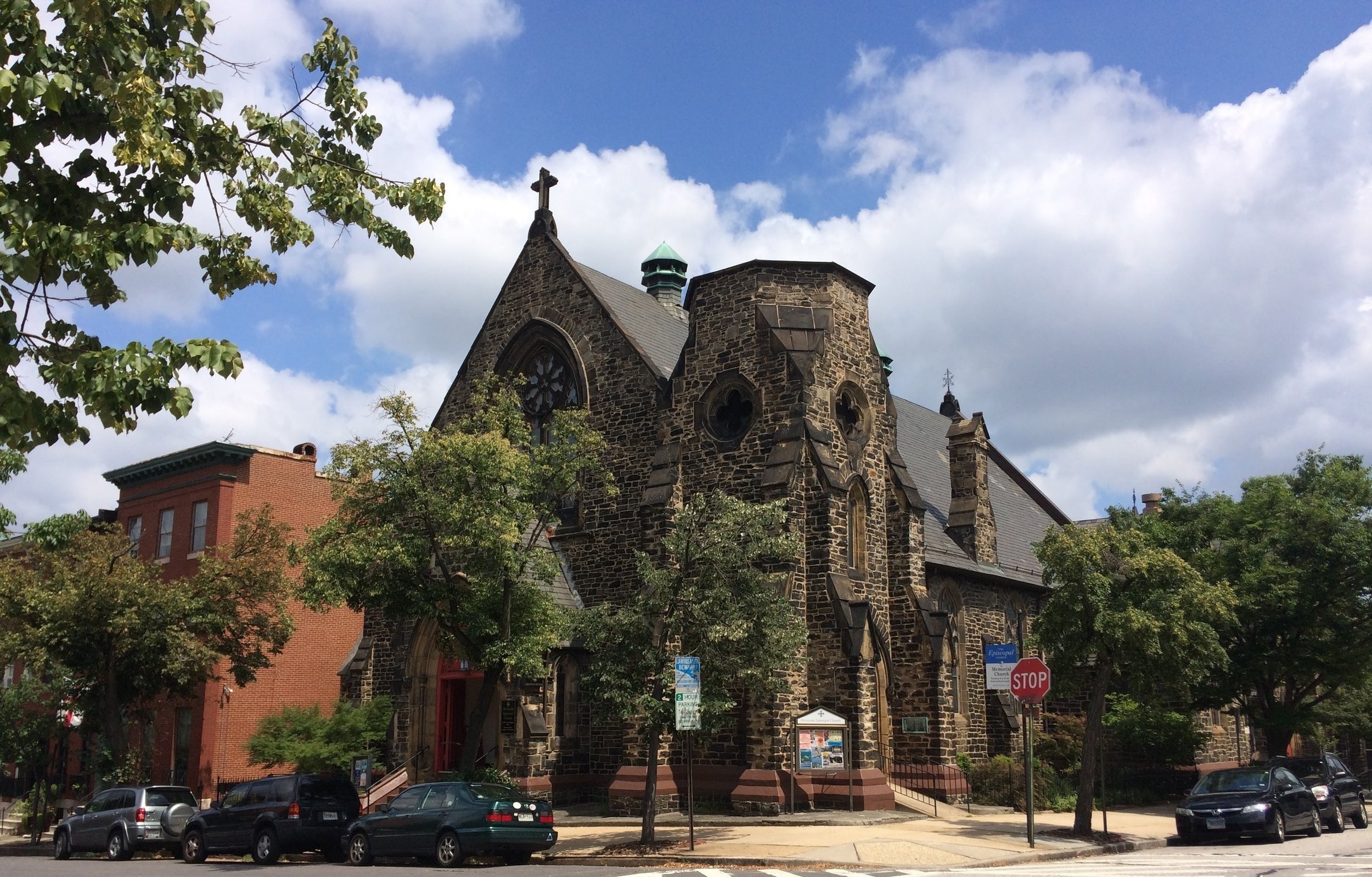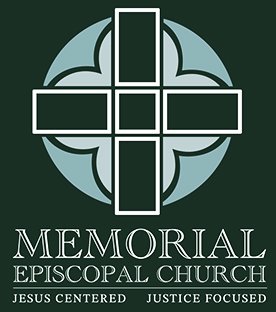
The View from Bolton Street
E-Friendship Hour
One thing we really miss not being in community are our youth. And one thing parents all need right now is a break. So have your kids join for a digital “Friendship Hour” Thursdays at 3 pm on zoom. Follow the link below to join us!
Topic: Friendship hour
Time: Apr 16, 2020 03:00 PM Eastern Time (US and Canada)
Join Zoom Meeting
https://zoom.us/j/99131261760?pwd=eElsVnhQREg2eC9SVUk0eUhjNnlKdz09
Meeting ID: 991 3126 1760
Password: 043326
One tap mobile
+13126266799,,99131261760#,,#,043326# US (Chicago)
+19292056099,,99131261760#,,#,043326# US (New York)
Dial by your location
+1 312 626 6799 US (Chicago)
+1 929 205 6099 US (New York)
+1 253 215 8782 US
+1 301 715 8592 US
+1 346 248 7799 US (Houston)
+1 669 900 6833 US (San Jose)
Meeting ID: 991 3126 1760
Password: 043326
Find your local number: https://zoom.us/u/abgnIj7Rl
GM
Stay Home Bible Study
During this most unusual season make sure you are practicing social distance not social isolation!
Join us for an online bible study via zoom - by clicking on the link below!
Topic: Wednesday Bible Study
Time: Apr 1, 2020 06:30 PM Eastern Time (US and Canada)
Join Zoom Meeting
https://zoom.us/j/480765754?pwd=RmVRRE95Y282UVorVU55WStXVnBEUT09
Meeting ID: 480 765 754
Password: 000973
One tap mobile
+13126266799,,480765754# US (Chicago)
+19292056099,,480765754# US (New York)
Dial by your location
+1 312 626 6799 US (Chicago)
+1 929 205 6099 US (New York)
+1 346 248 7799 US (Houston)
+1 669 900 6833 US (San Jose)
+1 253 215 8782 US
+1 301 715 8592 US
Meeting ID: 480 765 754
Find your local number: https://zoom.us/u/abgnIj7Rl
COVID 19 Changes at Memorial Episcopal Church
The Bishop of Maryland has asked that all Episcopal Churches within the jurisdiction of the Diocese suspend public worship until March 27th.
To that end, Memorial’s programs and worship is currently suspended. Currently all of our programs are taking place digitally via phone calls and zoom. For more information read the weekly email or visit www.memorialepiscopal.org
Samaritan Community maintains basic operations to serve the most vulnerable in our community, and AA meetings continue as well.
For questions please contact Rev. Grey at grey@memorialepiscopal.org or 410-669-0220
The View From Bolton Street
The Lord said to Abram, “Go from your country and your kindred and your father’s house to the land that I will show you. I will make of you a great nation, and I will bless you, and make your name great, so that you will be a blessing. I will bless those who bless you, and the one who curses you I will curse; and in you all the families of the earth shall be blessed.”
So Abram went, as the Lord had told him; and Lot went with him
Genesis 12:1-4
“...And Lot went with him.”
Sometimes you are Abram (who becomes Abraham). Sometimes God calls you and you are destined for great things! You will be a great nation. Blessed by God and in turn you will be a blessing to all people!
And sometimes you’re not.
Sometimes you win, and sometimes you lose.
Now I do not know what was in Lot’s heart. I do not know if he resented having to follow his uncle around, but it seems likely. I’m sure he had his own ideas about what God wanted from God’s people or at the very least what would be best for people. I am sure Lot would have preferred to have been chosen. However, when Abram was called, Lot went with him.
I’m sure when Abram left a land of relative plenty for the deserts of the Negev, Lot thought ‘this old man is crazy.’ Yet, Lot went with him.
I’m sure when Abram pretended not to know his wife, almost giving her away to Egyptian rulers rather than risk his own neck, Lot thought, ‘what a hypocrite, this is our leader?’ Yet, Lot went with him.
I’m sure when Abram said “you take these fertile valleys and I’ll go the other way so that we can both profit and live” Lot thought, ‘this Old man is senile!’. Yet, Lot went with him.
And because of his loyalty, Lot is saved twice by Abraham and God: once when he is captured by Melchizedek and again before God destroys Sodom and Gomorrah.
Lot lost in life. A lot. He lost his father at a young age. His homeland. His flocks and possessions. His home. His family. But he was a faithful and gracious loser, a good example for us.
Not everyone is graceful. If Lot were to have stayed behind in Harran, the reality is there would not have been much for him. His family was gone and he would have been alone. True to his ideals, sure, but hungry, poor and alone. Instead, Abraham and Lot walk together. They walk together through the desert to Egypt. Back out through the wilderness and to the Promised Land. They walk as long as they can together and when they finally part, they do it gracefully, amicably, and with God’s blessing.
How long can you walk with the family when you don’t see eye-to-eye? With your friends? Co-workers?
When someone else gets promoted over, gets what you wanted you it is tempting to want to burn bridges, right? We think, oh that person is a hypocrite! Senile! Immoral! But, is that what is best? For you? For your other co-workers? For the mission?
When a favored child, cousin, sibling, aunt or uncle “wins” it can feel like we lost. How long can you walk with that family member, even if you don’t agree on everything or anything?
Who is going to offer up an alternative voice? Who is going to tell the other side of the story? Who is going to challenge and push and lovingly remind the winners that the losers are still here? Will it be you?
Lot, along with Job and other lovable losers of the Bible, provides us with an archetype of how to be gracious in loss. It’s not an easy model to follow, and I wouldn’t suggest taking all of his life advice (for example, he he ends up alone drunk in a cave with no idea he’s fathered more children). But, Lot follows Abraham, seeks to do God’s will, and be an example of faithfulness even when things don’t go quite right. A challenge for all of us.
No conversation about losing is complete without a note to the winners. When the enemy holds Lot captive, Abraham sacrifices everything to come get him. When Lot’s whole city is going to be burned to the ground, Abraham barters with God for his and their salvation and actual angels come, rescue him, and bring him to safety.
Winners must be gracious too.
There is no harm in sending a note of condolence to someone whose favored candidate lost, to sending a congratulations note to the person with “your” promotion. No shame in reaching out to a relative going through a hard time. No limit to the effort you might go through to save a sibling or relative or friend from their destruction, eEven if it is of their own making.
Abraham pays Lot’s lodging, tuition, and bail. He invests in his business and testifies for him in court. Never once asking if it costs too much.
‘So Abram went, as the Lord had told him. And Lot went with him.’
Will you go too?
The View From Bolton Street
Dear People of God: The first Christians observed with great devotion the days of our Lord's passion and resurrection, and it became the custom of the Church to prepare for them by a season of penitence and fasting. This season of Lent provided a time in which converts to the faith were prepared for Holy Baptism. It was also a time when those who, because of
notorious sins, had been separated from the body of the faithful were reconciled by penitence and forgiveness, and restored to the fellowship of the Church. Thereby, the whole congregation was put in mind of the message of pardon and absolution set forth in the Gospel of our Savior, and of the need which all Christians continually have to renew their repentance and faith.
(Book of Common Prayer, 264-265)
The “Invitation to a Holy Lent” from the liturgy for Ash Wednesday presents an auspicious and intimidating image of Lent. One cant help but read this and wonder ‘Am I a Notorious Sinner?’ It might be enough to push you off from the whole lenten project altogether. “That’s not the kind of place I want to worship” you might find yourself saying.
But before you run for the hills, let us examine what exactly a ‘Notorious Sinner’ is. Our Lenten practices that we still observe today - of prayer and fasting, of ashes and devotions, of Palm Sunday and Holy Week all building up to the Easter Vigil because in the 300’s in Jerusalem. And they were developed in response to a problem.
You see, while Christians were being persecuted by the Roman Empire, intense pressure was put on Christians, especially well known Christians, to recant their faith publicly and devote themselves to the Roman Gods. Worse, if they did not, they often found themselves threatened with long imprisonment or death. While some Christians joyful went into Martyrdom knowing that the life that awaited them was better than this world could ever offer, many many did not and recanted. And more than a few also in the process identified other secret Christians to be put on trial for their faith. These ‘Notorious Sinners” were the enemies of Christians all over the Empire, and many Christians lived in fear of them.
Now after Constantine declared Christianity the official religion of the Roman Empire, there was a problem. The first was how this under ground religion was going to be incorporated into the life of the Empire - that is a problem we still wrestle with today - the balance between Church and State, between loyalty to Christ and loyalty to Country. But the more immediate problem was what to do with all these Notorious Sinners? Because now that the Church had power they wanted back in the Church!
Certainly there were many Christians who wanted vengeance, punishment, or at least some kind of recognition of the suffering caused. But Christians follow a loving and forgiving savior, and so they began a process of reconciliaiton for those penitent sinners who truly wanted to be readmitted into the Church. The required spending all of Lent, sometimes longer in Jerusalem or Rome, kneeling outside the church for hours at a time, receiving instruction in the faith, repenting of sins and finally, if the Bishop approved, being re-admitted into the faithful at the Easter Vigil. It was a season of atonement, and presented a way for people living in broken relationship to first repair their relationship with God and second with each other.
So you may still ask yourself ‘Am I a notorious sinner?’ But the answer will have less to do with a catalogue of sins and more to do with our relationships with Jesus and with our neighbors.
This Lent I invite you into a season of penitence and fasting, of prayer and repentance. But also of healing and reconciliaition. And Ultimately of hope. What notoriously broken relationships exist in your life? How can you re-connect first to God, and then to each other, to repair those relationships, and show the world what true Christian love and Charity looks like?
The View From Bolton Street
There was a Pharisee named Nicodemus, a leader of the Jews. He came to Jesus by night and said to him, “Rabbi“
What kind of conversations do you have when other people aren’t listening? Who are you afraid to talk to in public, but enjoy talking to or would like to talk to, in private? Who would you seek out under cover of night, like Nicodemus sought out Jesus, to learn the truth from?
And who do you so dislike? Hold in such low esteem? That would never. EVER want to know what they thought about anything?
Nicodemus goes to Jesus under cover of night because he desperately wants to understand Jesus’ story - but he is afraid that by reaching out to this ‘other’ he will sacrifice his position, his power, his prestige. He is worried he will lose his friends and maybe even his family because of it.
Are there conversations you are afraid to have because you are afraid of breaking relationships? Are there people you can’t talk to because you’re afraid what there’s might say?
This Lenten Season at Memorial we are going to focus on Conversation and Contempt. Jesus was a master throughout his ministry of having difficult conversations and building relationships with people across cavernous boundaries; whether it is Nicodemus the Pharisee, The Samaritan woman at the well, Lepers, Centurions, the sick and those in prison, Jesus sought them out for conversation to be in relationship, and taught all of us how to live a life without contempt.
Sadly, there is far too much mistrust, contempt and de-humanization of the other in this world. And too little opportunity to listen, to hear, and to engage across boundaries of difference - be they about skin color, wealth, language, ability, identity, or politics.
Even within the Church unity seems to be in ever shorter supply. Some have given up entirely on the prospect.
This Lent I would like to invite you to explore how we can have real authentic in person conversation. Our Sunday Worship and formation will be centered around helping us to hear, see and know each other. To recognize how different each of us are, and how it is that uniqueness that makes us the same and helps to make us the body of Christ. We will also explore ways to listen to those we disagree with. Those who see the world differently than we do, and those who live in a different world than we do.
Why Now? Why Lent?
Let’s face it. Most of us hold someone or some group of people in contempt. We can’t imagine why they would vote that way. Act that way. Be that way.
It is our hope that this lent you can move from contempt to conversation. To see the humanity in the other and find ways to engage hopefully and honestly across boundaries of difference - physical, mental, emotional and spiritual.
Each Sunday will have a slightly different feel as we listen to the voices in the Gospel (Satan’s temptations in the desert, the Samaritan woman at the well, the man born blind, Nicodemus, and Lazarus and his stubborn family) and how they represent different opportunities for us to listen, to communicate, and to develop new and deeper relationships with each other and with Jesus as well.
















